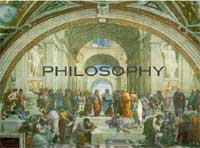 |
|
 |
| |
| |
| |
| |
| |
| |
| |
Campus: Kensington Campus
| |
| |
Career: Undergraduate
| |
| |
Units of Credit: 6
| |
| |
| |
| |
Indicative Contact Hours per Week: 3
| |
| |
Enrolment Requirements:
| |
| |
Prerequisite: 30 units of credit at Level 1; Excluded: PHIL2001, PHIL2002
| |
| |
Excluded: PHIL2001, PHIL2002
| |
| |
| |
| |
| |
| |
| |
| |
| |
 |
|
 |
This is a shelf course. A shelf course comprises a number of modules related to this broad area of study. Each module is a separate semester of study in this area and is offered in rotation. You can study TWO modules but you cannot study the same module twice.
|
Subject Area: Philosophy
Module: "Ways of Reasoning" (Summer Semester, 2011)
Examines what reasoning and argument really are and how best to engage in them. Material for this course is drawn from everyday sources, such as newspapers, books and advertisements, including television, as well as some of the brilliant pieces of reasoning in the philosophical tradition. From studying the structure of arguments, the purpose of reasoning, and a number of strong and weak argumentative moves, and from a guided re-evaluation of their own writing, students will be able to improve their critical skills and the presentation of their own arguments.
Module: "Logic" (Semester 1, 2011)
This course is about deductive logic (in particular, propositional logic and predicate logic). Aims to construct - and to understand - a precise, unambiguous, formal language. Many important parts of English are translatable into it, hence many arguments of English are translated into it too. It is a language with which we can better understand the concept of deductive proof.

